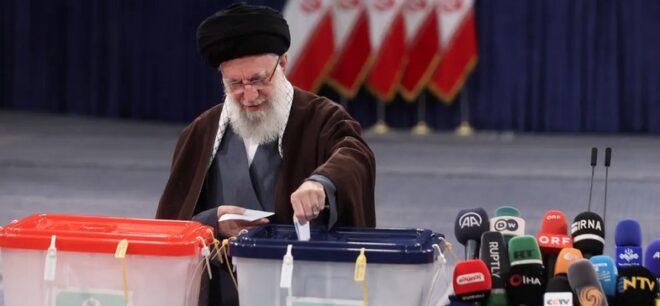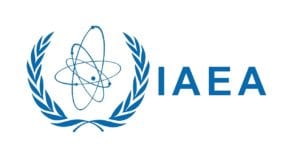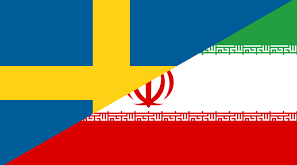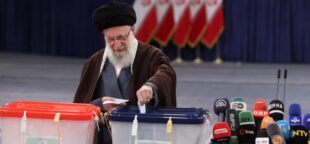iranintl.com – The Iranian government is getting prepared for an early presidential election on June 28 following the sudden death of former President Ebrahim Raisi in a helicopter crash last Sunday.
The Islamic Republic held controversial parliamentary elections in March, which were highly stage-managed by the constitutional Guardian Council, seen as generally taking its cues from Supreme Leader Ali Khamenei’s office. Hundreds of candidates were blocked by the Council, handing victory to hardliners. There was little popular appetite to vote in what appeared to be a certain one-sided election. Consequently, turnout was well below 50% and the lowest in the 45-year history of the Islamic Republic.
In fact, Raisi had also been elected in a similar fashion, with serious rivals having been barred from running in June 2021.
Although it is not clear if the upcoming presidential vote will also be stage-managed to eliminate an array of insiders, there is no indication that the majority of Iranian voters have changed their minds about the futility of casting ballots.
In an astonishing development, even for Iran, a hardline commentator on live state TV called for even stricter control of the elections to ensure that someone exactly like Raisi, who has been the most obedient president to Khamenei so far, is elected.
A similar call was made by the editor of hardline daily Kayhan Hossein Shariatmadari, who is appointed to the post by no one other than Khamenei himself. Shariatmadari said in his own complacent way that “People are looking for someone like Raisi and will not vote for anyone whose ideas are different from the former presidency.” Whether this reflects Khamenei’s preference as election campaigning soon begins, is not clear.
Meanwhile, Iranian media quoted Omid Javan, a newspaper born with Iran’s reform movement in 1997, as saying that it is still not clear whether this election is going to follow the closed model set in 2021 or it will be similar to 2017 election, which allowed non-hardliners to run.
When Raisi was elected in 2021, everyone, even other conservative candidates knew that he was Khamenei’s choice and that he would be named as the winner. All high-profile moderate and reformist candidates were barred from running.
Between 2009 and 2021, the regime allowed minimal reformist presence in the election. In 2017 former president Hassan Rouhani used the wave of support for his predecessor Akbar Hashemi Rafsanjani, sidelined by Khamenei.
The candidates for the upcoming election have not been announced yet, as they are waiting for the mourning period following Raisi’s death to conclude. This period will end on Saturday when Khamenei holds a commemoration ceremony for his obedient servant. During this session, he may provide his first guidelines regarding the election. It would be considered impolite and disrespectful to start campaigning before then.
Registration of candidates will take place between May 30 and June 3. The Guardian Council will do the vetting quickly in a matter of less than two weeks, and then official campaigning will start on June 12 and will continue until one day before the 18 June voting day.
There will probably be several conservative and ultraconservative candidates including former Majles Speaker Mohammad Bagher Ghalibaf and ultraconservative figurehead Saeed Jalili, while Iran’s reformists are going to decide on Sunday, whether to have or not have a candidate. In the meantime, reformist leader Mohammad Khatami has said that there is no point for reformists to take part in the election if they do not have a candidate. That Khatami was not invited to the funeral ceremony led by Khamenei, possibly an early indication that Khamenei does not want to see any reformist around.
This is the first time an Iranian presidential election is taking place just months before the US presidential elections. This timing prevents Khamenei from selecting a president or candidate based on their potential interactions with the next US president.
The most likely candidate in the reform front is Majid Ansari, a cleric whose career includes serving as a prison warden. On the moderate-conservative side, former Majles Speaker Ali Larijani may or may not run as some analysts say Khamenei has not forgiven him for forging close ties with former President Hassan Rouhani in what hardliners perceived as a conspiracy to influence the process of Khamenei’s succession.
Interestingly, it will once again be up to Khamenei to decide whether to open up the political landscape after Raisi’s death or to continue with the political purging that Raisi epitomized.
 Shabtabnews In this dark night, I have lost my way – Arise from a corner, oh you the star of guidance.
Shabtabnews In this dark night, I have lost my way – Arise from a corner, oh you the star of guidance.



